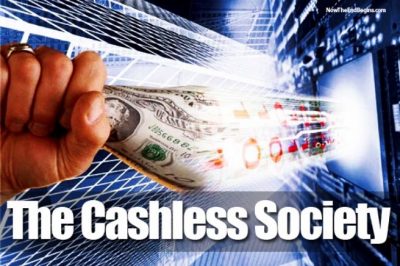Fedcoin: It Starts with a Trial Run

All Global Research articles can be read in 51 languages by activating the Translate Website button below the author’s name.
To receive Global Research’s Daily Newsletter (selected articles), click here.
Follow us on Instagram and Twitter and subscribe to our Telegram Channel. Feel free to repost and share widely Global Research articles.
***
A cashless society would be the nail in the coffin for liberty and freedom, offering centralization, the likes of which Marx could only dream. The existence of a government backdoor or spyware becomes a real possibility, and given the State’s track record, a real likelihood. Then, of course, the ability to track, freeze, and even set expiry dates on money, will be marketed as “features” to protect the public.
As for the 5.9 million Americans considered “unbanked,” i.e., those who have no checking or savings accounts, (the poor, weak, and vulnerable) they can expect life to get more difficult. This is the price we pay for free market intervention.
Earlier in the week, the Federal Reserve Bank of New York made the announcement:
Members of the U.S. Banking Community Launch Proof of Concept For A Regulated Digital Asset Settlement Platform
The explanation may only make sense for those well versed in crypto technology:
Members of the U.S. banking community today announced the launch of a proof of concept (PoC) project that will explore the feasibility of an interoperable digital money platform known as the regulated liability network (RLN). Using distributed ledger technology, the proposed platform would create innovation opportunities to improve financial settlements and would include participation from central banks, commercial banks of various sizes and regulated non-banks.
Basically, Fedcoin is advancing and is now in the testing stage:
The 12-week PoC will test a version of the RLN design that operates exclusively in U.S. dollars where commercial banks issue simulated digital money or “tokens” – representing the deposits of their own customers – and settle through simulated central bank reserves on a shared multi-entity distributed ledger.
Some of the largest financial institutions are involved in this 12-week program:
BNY Mellon, Citi, HSBC, Mastercard, PNC Bank, TD Bank, Truist, U.S. Bank and Wells Fargo.
Plus:
The technology is being provided by SETL with Digital Asset, powered by Amazon Web Services. Swift, the global financial messaging service provider, is also participating in the initiative to support interoperability across the international financial ecosystem.
From Bitcoin to Dogecoin, there seems little long term hope for those who love privacy and autonomy when the largest corporations and fintech firms work with the Federal Reserve to roll out a Central Bank Digital Currency (CBDC).
Would you like to know who else is was working with the Feds? Courtesy Coindesk:
Former FTX CEO Sam Bankman-Fried was, until last week, a major political donor – he gave $5.2 million to U.S. President Joe Biden’s presidential campaign and spent another $40 million supporting mainly Democratic candidates ahead of the November midterm elections – and an influential figure in Washington.
Bankman-Fried regularly met with regulators and lawmakers, weighing in on how the crypto industry should be regulated. He was a vocal supporter of one bill, in particular: the bipartisan Digital Commodities Consumer Protection Act (DCCPA), a still-in-progress bill…
We know for certain CBDCs are coming, as well as more regulation. And given the trajectory of both, a cashless society is too. What is less certain is whether or not Sam Bankman-Fried, for his culpability in what may amount to one of the largest thefts of all time, will ever see jail time.
*
Note to readers: Please click the share buttons above. Follow us on Instagram and Twitter and subscribe to our Telegram Channel. Feel free to repost and share widely Global Research articles.
Featured image is from Advancing Time

